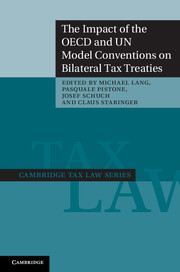Book contents
- Frontmatter
- Contents
- Contributors
- Preface
- Table of cases
- Table of statutes
- General report
- 1 Argentina
- 2 Australia
- 3 Austria
- 4 Belgium
- 5 Brazil
- 6 Canada
- 7 Chile
- 8 China
- 9 Colombia
- 10 Croatia
- 11 The Czech Republic
- 12 Estonia
- 13 Finland
- 14 France
- 15 Germany
- 16 Hong Kong
- 17 Hungary
- 18 India
- 19 Italy
- 20 Lebanon
- 21 Liechtenstein
- 22 The Netherlands
- 23 New Zealand
- 24 Norway
- 25 Peru
- 26 Poland
- 27 Portugal
- 28 Romania
- 29 The Russian Federation
- 30 Serbia
- 31 Slovakia
- 32 Slovenia
- 33 Spain
- 34 Sweden
- 35 Uganda
- 36 The UK
- 37 The USA
- Index
- References
14 - France
Published online by Cambridge University Press: 05 November 2014
- Frontmatter
- Contents
- Contributors
- Preface
- Table of cases
- Table of statutes
- General report
- 1 Argentina
- 2 Australia
- 3 Austria
- 4 Belgium
- 5 Brazil
- 6 Canada
- 7 Chile
- 8 China
- 9 Colombia
- 10 Croatia
- 11 The Czech Republic
- 12 Estonia
- 13 Finland
- 14 France
- 15 Germany
- 16 Hong Kong
- 17 Hungary
- 18 India
- 19 Italy
- 20 Lebanon
- 21 Liechtenstein
- 22 The Netherlands
- 23 New Zealand
- 24 Norway
- 25 Peru
- 26 Poland
- 27 Portugal
- 28 Romania
- 29 The Russian Federation
- 30 Serbia
- 31 Slovakia
- 32 Slovenia
- 33 Spain
- 34 Sweden
- 35 Uganda
- 36 The UK
- 37 The USA
- Index
- References
Summary
The relevance of the OECD and UN Model Conventions and their Commentaries for the interpretation of French tax treaties
The current French tax treaty network is the heritage of quite an old practice and probably one of the most impressive in the world: more than 120 treaties relating to taxes on income (including wealth taxes) and taxes on capital.
Some treaties are particularly important in this network either because they are particularly innovative (for example, the new treaty with the USA) or because they are particularly exceptional (for example, the treaty with Monaco). Furthermore, regarding the exercise of its taxation rights, France is in a rather odd situation. As regards the application of the Tax Code, it is necessary to differentiate between France (including the French overseas departments, Départements d'Outre-Mer (DOM), i.e. Guyana, Martinique, Réunion and Guadeloupe) and other overseas territories which – geographically speaking – are still parts of France but which are fiscally autonomous. These are New Caledonia, French Polynesia, Wallis and Futuna, Saint Pierre and Miquelon, Mayotte, Saint-Barthélemy, the French part of Saint Martin and the French Southern and Antarctic Lands. Some of them have treaties with France (French Polynesia (1957), New Caledonia (1983), Saint Pierre and Miquelon (1988) and Mayotte (1970)).
- Type
- Chapter
- Information
- Publisher: Cambridge University PressPrint publication year: 2012

